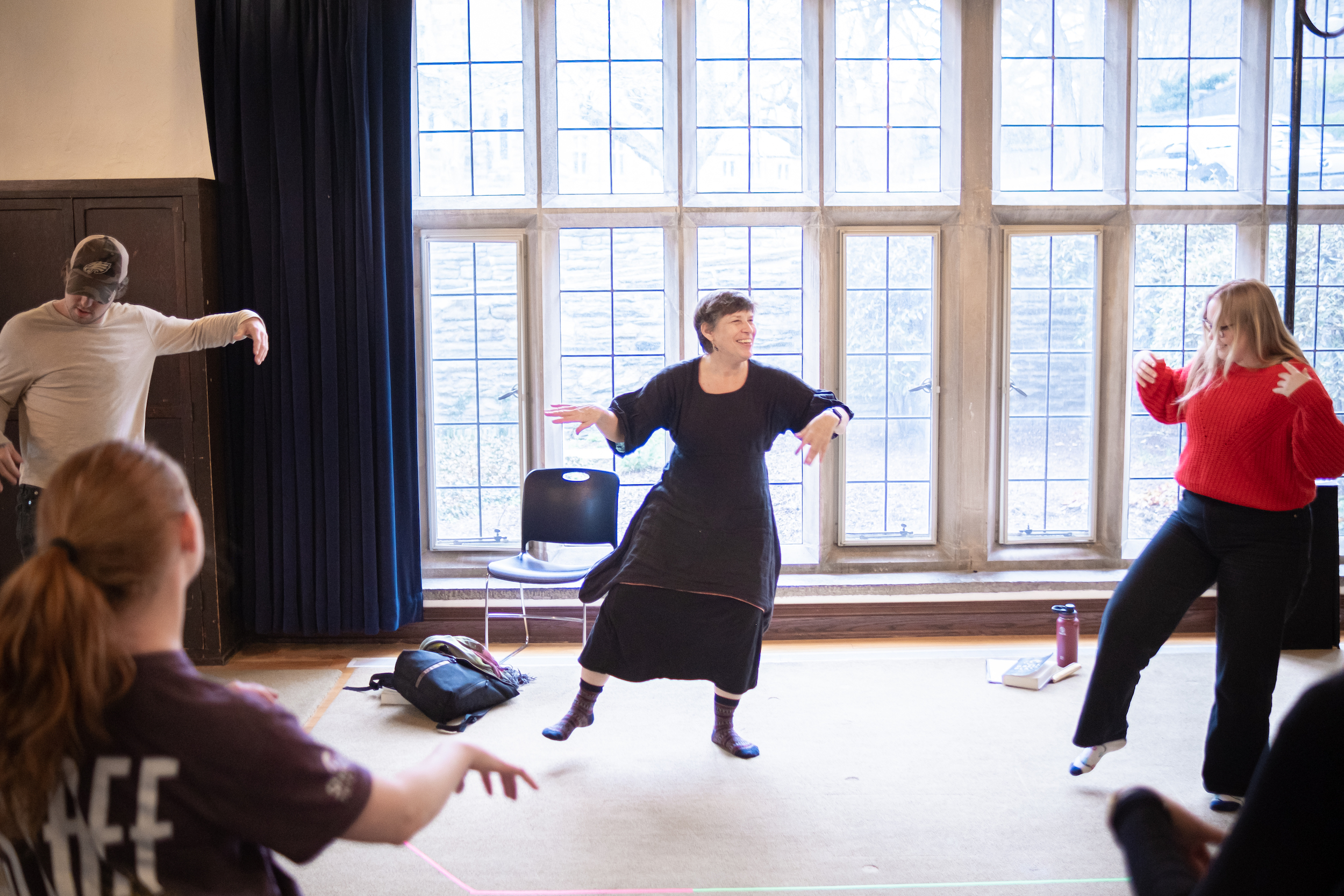Greek tragedy is notoriously difficult to stage. It’s full of lengthy speeches, offstage action, and vague yet grandiose lines of gnomic wisdom. And many classicists consider it first and foremost a text, a piece of literature that we sit at a desk and read to ourselves, diligently working through challenging syntax and looking up specialized vocabulary. But in truth, Greek tragedies were composed to be performed—primarily at the City Dionysia, a religious festival in ancient Athens, in enormous outdoor theaters you can still visit today. That living spirit of performance is what this semester’s graduate seminar (GSEM), Tragedy in Performance, sought to uncover.
I’ve worked with Greek tragedy before, as both a graduate and an undergraduate student. But I’d never taken an acting class. I’m used to studying the original Greek closely, and occasionally reading bits of English translations out loud. I thought that might be what this GSEM was—reading these scripts out loud, taking turns playing different characters. But as I discovered, acting is a lot more than putting on a funny voice and reciting some lines.

While Professor Sigelman guided us through the cultural context, literary traditions, and complex (and at times confusing) text of these stories, Professor Slusar introduced us to acting theory—Stanislavsky and Chekov, psychological gestures and embodied lines. Exercises and techniques like these forced me to rethink my approach to these familiar texts. I’ve always been fascinated by Electra, one of the only characters to appear in the work of all three surviving Greek tragedians. But taking on her role in a scene from Aeschylus’ Libation Bearers pushed me to reconsider her relationship with her brother Orestes all over again. How would it feel to see your brother for the first time in over a decade, while mourning your father and harboring a murderous rage towards your mother?
But that’s only half the question. After all, as Professor Slusar impressed upon us time and again, it’s called “acting,” not “feeling.” After all, Greek tragedy is filled with gruesome acts of violence that most of us can’t imagine, much less make ourselves feel. But that doesn’t mean we can’t tell those stories. As I worked with Professor Slusar and my scene partner to embody Electra’s first meeting with Orestes, I was able to consider her character and motivations from a whole new angle.
On the other hand, I learned just as much from watching my classmates work on their own scenes. Every actor makes choices about how they’re going to portray a character, and those choices can change an entire perception of a character. I’ve always thought King Creon was kind of stupid for letting Medea stay one more day in Corinth, but watching the scene play out “onstage” completely upended my understanding of the scene. Creon isn’t stupid, he’s magnanimous, and arrogant. And Medea is clever, conniving, and crafty—her lies are much harder to see through when they aren’t just words on the page.
The beauty of ancient literature is that you can discover new things every time you come back to a text. But the GSEM was an entirely different approach to these familiar texts, one that deeply enriched and enhanced my understanding of the stories, characters, and the culture from which they emerged. Treating Greek tragedies as texts to be broken down and analyzed on the page is crucial to our work as classicists. But as I discovered this semester, it’s equally important for us to consider these tragedies as living texts which were always meant to be performed, as public art that changed from one performance to the next, that continue to be adopted and adapted by artists and actors, playwrights and directors all over the world. And scholarly collaboration like the work we did together in the GSEM helps ensure that these stories continue on, both as texts to be analyzed and as living art, for centuries to come.
Mallory Fitzpatrick is a PhD candidate in Greek, Latin, & Classical Studies at Bryn Mawr College who works on horror in the ancient world, Roman satire, and Greek myth in epic, tragedy, and pottery.